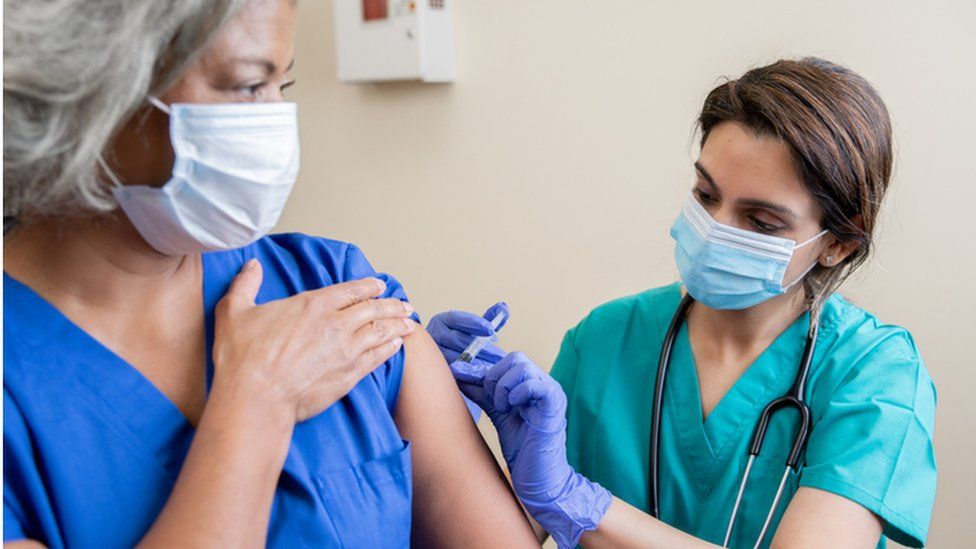Covid trial in UK examines mixing different vaccines

A UK trial has been launched to see if giving people different Covid vaccines for their first and second doses works as well as the current approach of using the same type of vaccine twice.
The idea is to provide more flexibility with vaccine rollout and help deal with any potential disruption to supplies.
And scientists say it is possible the new approach could even provide better protection than giving the same jabs.
For those not taking part in the trial, the current regimen remains unchanged.
Officials say anyone already given the Pfizer-BioNTech or Oxford-AstraZeneca vaccine as part of the UK's approved immunisation programme will receive their second dose of the same vaccine from the same place over the expected 12-week interval.
But scientists have good reason to believe the new mixing approach being trialled may prove beneficial - some Ebola immunisation programmes involve mixing different jabs to improve protection, for example.
The Com-Cov study, run by the National Immunisation Schedule Evaluation Consortium, will involve more than 800 volunteers over the age of 50 in England.
Some will receive the Oxford-AstraZeneca jab followed by the Pfizer-BioNTech vaccine or vice versa - four or 12 weeks apart.
Other vaccines may be added as they are approved by regulators.

Scientists will monitor volunteers for side-effects and keep a close eye on blood tests to see how well their immune systems respond.
And although the full study will continue for 13 months, the scientists are hopeful of being able to announce some initial findings by this June.
The study will also provide data on:
- the impact of the vaccines on new variants
- the effects of second doses at four and 12 weeks
And scientists say these could inform the type of vaccines some younger adults are offered as their second doses - as the vaccination rolls out to these age groups later in the year.
Prof Jonathan Van-Tam, England's deputy chief medical officer, said: "Given the inevitable challenges of immunising large numbers of the population against Covid-19 and potential global supply constraints, there are definite advantages to having data that could support a more flexible immunisation programme, if needed and if approved by the medicines regulator.
"It is also even possible that by combining vaccines, the immune response could be enhanced giving even higher antibody levels that last longer.
"Unless this is evaluated in a clinical trial, we just won't know."

- OXFORD JAB: What is the Oxford-AstraZeneca vaccine?
- YOUR QUESTIONS: We answer your queries
- VACCINE: When will I get the jab?
- NEW VARIANTS: How worried should we be?
- COVID IMMUNITY: Can you catch it twice?

Any changes to the UK's current strategy would need approval from the Joint Committee on Vaccination and Immunisation.
The chief investigator, Prof Matthew Snape from the University of Oxford, said the "tremendously exciting study" would provide information vital to the rollout of vaccines in the UK and globally.
"We call on those aged 50 years and above who have not yet received a Covid-19 vaccine to visit our website to find out more about the study and see if there is a study site near them," he said.
The study will be recruiting for the next two to three weeks and involve sites in:
- London
- Birmingham
- Liverpool
- Nottingham
- Bristol
- Oxford
- Southampton

- LOCKDOWN LEARNING: Need some assistance with home-schooling? BBC iPlayer is here to help
- THE ASK MARTIN LEWIS PODCAST: Why have workers missed out on Government financial help during the pandemic?

Related Internet Links

February 04, 2021 at 03:52PM
https://www.bbc.co.uk/news/health-55924433
Labels: BBC News

0 Comments:
Post a Comment
Subscribe to Post Comments [Atom]
<< Home